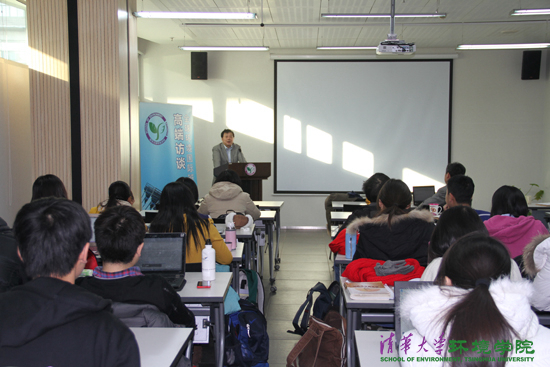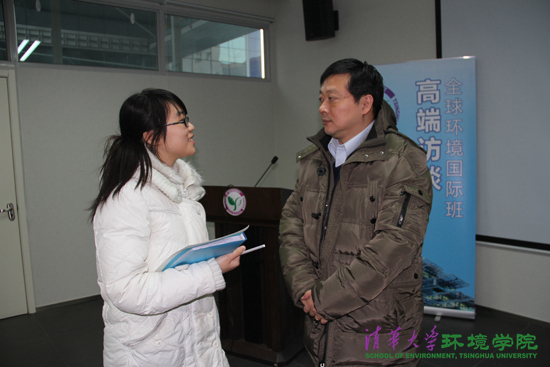Dr. Li Gao, the Deputy Director of the National Coordination Committee on Climate Change of the National Development and Reform Committee, attended the second session of “Top Talk” conducted by the Global Environment Program of School of Environment and hosted by Wang Can, the class teacher, on the afternoon of December 19, 2013; he shared his experience in international negotiations with the 40 students and analyzed the future trends of international negotiations.

Dr. Li started his talk with the progress of international negations on climate changes. In 1979, the World Meteorological Organization held the first World Climate Conference which drew global attention as it revealed the connection between climate change and human development as well as the potential climate hazards that might be resulted. In 1988, the United Nations General Assembly passed a resolution called Protection of Global Climate for Present and Future Generations of Mankind. In 1990, the 45th United Nations General Assembly voted to establish Inter-governmental Negotiating Committee to reach an international convention as to organize the international community to jointly confront the climate challenges. During 1991 and 1992, the United Nations Framework Convention on Climate Change was formulated and the negotiation was concluded. In December 1997, the Kyoto Protocol was formulated in Kyoto of Japan. The negotiation was renewed on the Montreal Climate Change Conference in 2005 when a new negotiation was initiated while the Kyoto Protocol was still in force. In 2009, the Copenhagen Climate Change Conference was launched, which was considered by Dr. Li as a negotiation on politics rather than one on technology.

Dr. Li addressed three key points for negotiations:
Avoid being isolated by other countries; the negotiation background for China has changed tremendously as China has become the world’s second largest economy rather than a poor country; international negotiations have stepped into a new stage.